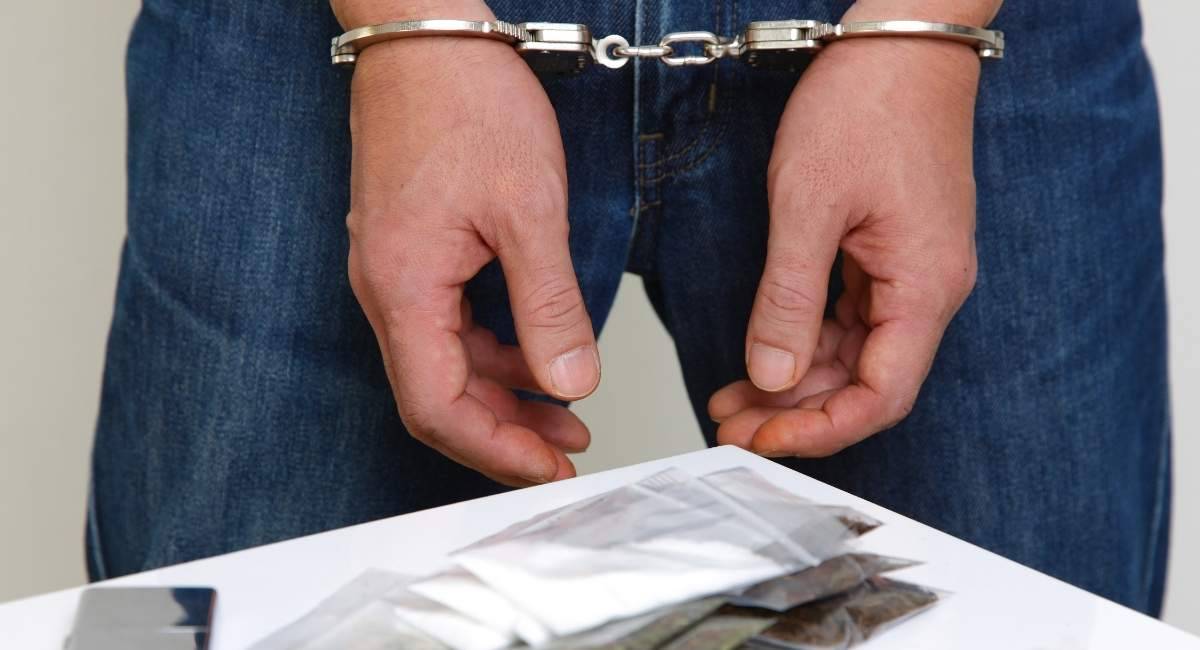If you were arrested for a drug-related DWI, you already know that a person does not have to be drunk from alcohol in order to be charged with driving while impaired.
A Texas driver under the influence of drugs, a controlled substance, or marijuana may be charged with DWI (driving while intoxicated, also known as driving under the influence [DUI] or drunk driving) even if he or she consumed no alcohol.
Many common prescription drugs are controlled substances. Driving with even a small trace of a controlled substance may result in an arrest for DWI. Combining alcohol with prescription drugs or marijuana may also result in a DWI charge, even if the driver’s blood-alcohol concentration (BAC) was less than the legal limit of 0.08 at which a driver is presumed to be impaired.
Among the many possible penalties for a drugged driving conviction are jail, fines, probation, community service, a required driver’s license suspension, DWI class, drug education and/or treatment, and higher insurance rates.
Drug-Related DWI Defense Lawyer in Plano, Allen, Frisco, and McKinney, TX
If you were arrested for a drug-related DWI in Plano, Texas or anywhere else in Collin County — whether the charge involved “street” drugs, marijuana, or prescription drugs — you should consult with an experienced DWI attorney who can explain the related laws and who will aggressively defend you in both criminal and civil (administrative) proceedings.
You must act quickly if you refused a breath test or chemical test for intoxicants because you only have 15 days after a DWI arrest to request an administrative hearing to retain your driver’s license or it will be automatically suspended. Law Offices of Richard C. McConathy can assist with both criminal and driver’s license issues, including representing a client at an Administrative License Revocation (ALR) hearing.
The Law Offices of Richard C. McConathy serves DWI clients throughout Collin County, Texas, including the cities of Plano, Carrollton, Garland, Frisco, McKinney, Allen, and Richardson, as well as many nearby communities throughout the North Dallas area, including Rockwall and Grayson counties.
Contact the lawyers at the Law Offices of Richard C. McConathy today at (469) 304-3422 to schedule a time to meet with us during a free, confidential consultation about your drug-related DUI case with one of our skilled DUI attorneys.
Drug-Related DWI in Plano, Texas
The same section of the Texas Penal Code that applies to alcohol-related DWI also applies to drug-related DWI. Under Title 10, Chapter 49, § 49.04, driving while intoxicated may be charged when a “person is intoxicated while operating a motor vehicle in a public place.”
Related sections of the Texas statutes provide definitions of the key terms related to Drug-Related DWI.
“Motor vehicle” is defined as “a device in, on, or by which a person is or may be transported or drawn on a highway, except a device used exclusively on stationary rails or tracks” (Texas Penal Code Ann. §§ 32.34(a) and 49.01(3)).
“Intoxicated” is defined as:
- “Not having the normal use of mental or physical faculties by reason of the introduction of alcohol, a controlled substance, a drug, a dangerous drug, a combination of two or more of those substances, or any other substance into the body; or
- Having an alcohol concentration of 0.08 or more”
“Alcohol concentration” (also known as blood-alcohol concentration or BAC) is defined in the statute to mean “the number of grams of alcohol per:
- 210 liters of breath
- 100 milliliters of blood, or
- 67 milliliters of urine.”
Under Texas ‘implied consent” law, the Plano Police, Collin County Sheriff’s deputies or Texas Highway Patrol are entitled to test a person’s breath, blood or urine for alcohol or drugs. A person may refuse a chemical test for alcohol or drugs, but refusal results in an automatic driver’s license suspension (which may be appealed if the appeal is filed within 15 days of arrest).
A person must have “actual physical control” of a vehicle in order to be operating the vehicle. By this standard, a person must be in or near the vehicle, with the capability to operate the vehicle, even if he or she was not actually driving the vehicle at the time of the arrest.

Common DWI Drugs in Plano, Texas
A wide variety of both prescription drugs and street drugs may trigger a drug-related DWI.
Different drugs metabolize at different rates inside the human body. All traces of some drugs are gone within a few hours or days. Other drugs, notably marijuana, often linger in the body for weeks or up to a month or more. Some of the most common drugs found in DWI tests include:
Prescription Pills / Medications
- Ambien (Zolpidem)
- Codeine
- Darvocet (Dextropropoxyphene)
- Hydrocodone
- Lortab (Vicodin)
- Morphine
- Oxycontin (Oxycodone)
- Percocet (Oxycodone with Acetaminophen)
- Xanax (Alprazolam)
- Other Prescription Pills and Medications
Street Drugs
- Cocaine
- Ecstasy (MDMA)
- gamma-Hydroxybutyric acid (GHB)
- Heroin
- Lysergic acid diethylamide (LSD or “Acid”)
- Marijuana (Cannabis)
- Methamphetamine
- Opium
- PCP (Phencyclidine)
- Psilocybin Mushrooms
Blood Testing for Drugged DWI in Texas
A chemical test of a person’s blood will reveal the presence of any drugs in the person’s system. A person may refuse a chemical test, but a test refusal will result in an automatic driver’s license suspension. Under certain circumstances, the police may order a warrant for a blood test to draw blood even when a person refuses a test.
Under Chapter 724 of the Texas Transportation Code, the police must follow specific procedures when conducting a blood test. Only certain qualified individuals are allowed to conduct a DWI blood test and the equipment used in the test must also be certified as accurate. If the person who draws the blood is not permitted to do so or problems are discovered with the equipment, the results of the blood test may be excluded from evidence.
Because blood samples only show the substances (metabolites) in the blood and do not indicate when or in what quantity they were ingested — and because the substances may be present from previous use even though any effects of the drug have dissipated — a DWI defense lawyer may be able to show that the presence of these substances does not directly indicate the driver was under the influence or intoxicated by drugs when he or she was operating the motor vehicle.
Penalties for Drug-Related DWI in Texas
A first-time drug-related DWI offense in Texas may result in a Class B misdemeanor charge, which is punishable upon conviction by a mandatory minimum term of 72 hours in jail and up to 180 days in jail and/or a fine, not more than $2,000 (Texas Penal Code Ann., Title 3, Chapter 12, Subchapter B, § 12.22).
A Drugged DWI conviction requires a minimum jail sentence of six days if the driver had an open container of alcohol in his or her vehicle at the time of the arrest.
A second drugged DWI charge may result in a Class A misdemeanor charge, which is punishable upon conviction by a mandatory minimum term of 30 days in jail and a maximum of one year in jail and/or a fine not more than $4,000.
A third drugged DWI charge or a charge of Intoxication Assault from the use of drugs is a third-degree felony, which is punishable upon conviction by a term of two to 10 years in prison and/or a fine up to $10,000.
An offense of Intoxication Manslaughter from the use of drugs may result in a second-degree felony charge, which is punishable upon conviction by a term of two to 20 years in prison and/or a fine not more than $10,000.
In addition to the criminal penalties for a drugged driving conviction, civil (administrative) penalties are assessed.
Civil penalties — some of which may be ordered by the court — may include:
- Probation or community supervision
- Community service
- Automatic driver’s license suspension (a person charged with DWI in Texas will automatically lose his or her driver’s license unless he or she requests an administrative hearing within 15 days of the arrest)
- Annual DWI surcharges of $1,000 to $2,000 per year for three years in order to maintain a driver’s license after a DWI suspension is lifted
- Mandatory DWI class
- Requirements to attend an approved drug education program
- Drug assessment and drug treatment, if indicated Installation of an ignition interlock device
- Installation of an ignition interlock device (IID)
- Court costs
Additional Resources for Drug-Related DWI in Collin County, Texas
Texas Transportation Code, Title 10, Chapter 49 —Intoxication Offenses — Read the Texas statutes related to DWI and drunk driving offenses. Section 49.04 addresses drugged driving offenses, while Section 49.09 addresses enhanced DWI offenses and penalties.
Texas Drug Offender Education Program — Find general information about DWI drug offender education programs and access to search for programs throughout the Dallas Metroplex. A drug offender program, designed by the Texas Department of State Health Services (DSHS), is required of a drugged DWI offender before he or she may reinstate his or her driver’s license.
Texas Department of State Health Services Offender Education Programs — Find approved DWI offender education courses at this link, provided by the Texas DSHS. The programs are available to DWI offenders who have been ordered by a court to attend an approved alcohol or substance abuse education course.
Collin County DWI/Drug Court — Find information on the county website about its DWI and drugs court, including contacts for providers of addiction treatment. The stated mission of the DWI/Drug Court Program is “to promote community safety by providing intensive supervision services and treatment to reduce drug and alcohol usage, family violence, and offender recidivism.” The criminal courts are located at:
Collin County Court at Law 5
2100 Bloomdale Road, Suite 20382
McKinney, TX 75071
Phone: 972-548-3850
Fax: 972-548-3855
Find A Collin County Attorney to Fight Drug-Related DWI Charges | Law Offices of Richard C. McConathy
If you were arrested for a drug-related DWI in Plano or in Collin County, Texas, or any of the nearby communities north of Dallas, contact the Law Offices of Richard C. McConathy today to schedule a free initial consultation to discuss your case.
The experienced DWI attorneys at the Law Offices of Richard C. McConathy will be able to provide important information about the laws and consequences related to a drugged driving charge and assist you in preparing a solid defense.
The Law Offices of Richard C. McConathy serves clients throughout Collin County, including Plano, Garland, McKinney, Frisco, Carrollton, Allen, and Richardson, as well as neighboring Rockwall and Grayson counties. Contact the Law Offices of Richard C. McConathy today at (469) 304-3422 to discuss your case.


